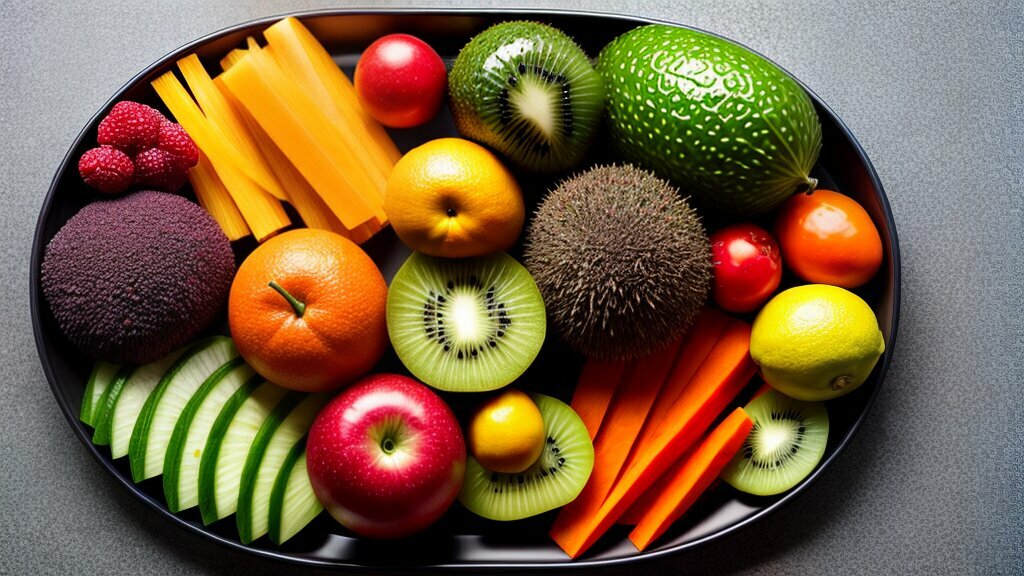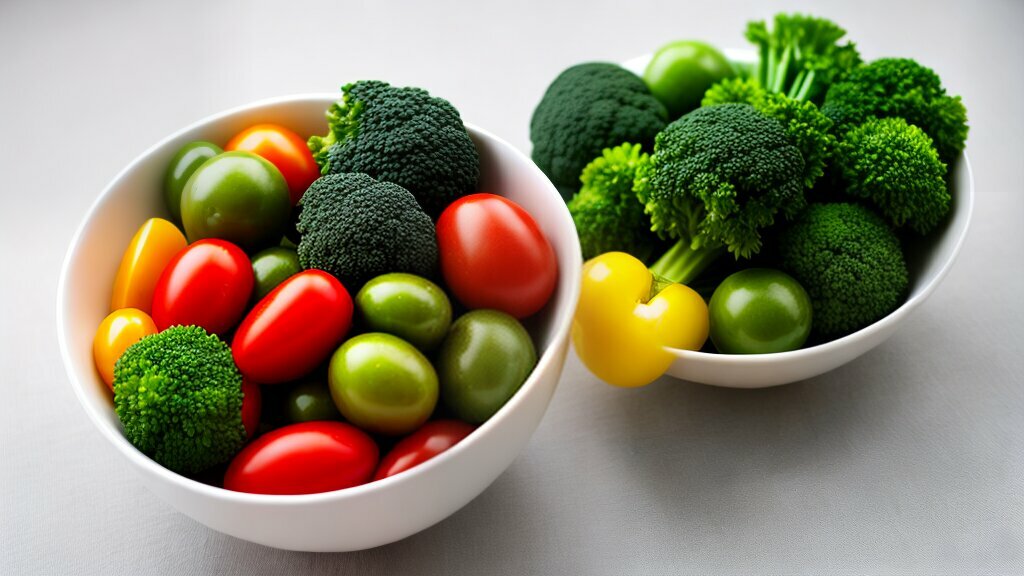Welcome to our guide on eating for vitality! If you’re feeling sluggish and low on energy, it’s time to look at the fuel you’re putting into your body. By adopting a diet rich in nutritious foods, you can boost your energy levels and experience a transformative change in your overall health and wellbeing.
But first, what exactly does it mean to eat for vitality? Essentially, it means choosing foods that nourish your body and provide the energy and nutrients you need to thrive. This includes plenty of fresh fruits and vegetables, whole grains, lean proteins, and healthy fats.
In the following sections, we’ll explore the benefits of healthy eating for energy, provide practical tips for nourishing your body with nutritious meals, and highlight essential nutrients that can boost your vitality. By the end of this guide, you’ll have the tools and knowledge you need to create a sustainable, energizing diet.
Key Takeaways:
- Eating for vitality means nourishing your body with nutritious foods.
- A healthy diet can boost your energy levels and improve your overall wellbeing.
- In the following sections, we’ll explore practical tips for incorporating vitality-enhancing foods into your diet.
The Benefits of Healthy Eating for Energy
You’ve probably heard the saying, “you are what you eat.” This statement rings true when it comes to your energy levels. The food you consume can make or break your energy, mood, and overall vitality. Healthy eating is key to maintaining high energy levels and promoting sustained vitality.
When you supply your body with the right nutrients, you’ll feel more alert, focused, and energized. Here are some of the top benefits of healthy eating for energy:
| Nutrient-dense foods fuel your body | Eating foods that are rich in nutrients and vitamins will give your body the energy it needs to function at a high level. Nutrient-dense foods include fruits, vegetables, whole grains, and lean protein sources. |
|---|---|
| Stable blood sugar levels | When you eat foods that are high in sugar or processed carbohydrates, your blood sugar levels can spike and crash, leaving you feeling sluggish and irritable. A balanced, nutrient-rich diet promotes stable blood sugar levels, which can sustain energy levels throughout the day. |
| Improved mental clarity | Healthy eating habits have been linked to better cognitive function. When you fuel your body with nutritious foods, you may experience enhanced focus and better mental clarity. |
If you’re looking to boost your energy levels and promote sustained vitality, start by nourishing your body with healthy, nutrient-dense foods.

Fueling Your Body: Nourishing Meals for Vitality
Creating nourishing meals that fuel your body with essential nutrients is key to boosting energy and promoting overall vitality. Here are some practical tips and examples to help you get started:
| Meal Time | Meal Components |
|---|---|
| Breakfast |
|
| Lunch |
|
| Dinner |
|
Remember to aim for balance in your meals by including a variety of macronutrients such as carbohydrates, protein, and healthy fats. Incorporate plenty of fresh fruits and veggies to provide important vitamins and minerals, and choose whole grain options for added fiber and sustained energy.
Don’t forget to hydrate properly! Aim for at least eight glasses of water per day, and consider incorporating herbal teas or coconut water for added hydration and flavour.

Meal planning can also be a helpful tool to ensure you are consistently fueling your body with nutrient-rich meals. Consider prepping and cooking meals ahead of time to ensure you always have a healthy option available, or plan meals and snacks for the week to stay on track with your goals.
By incorporating balanced and nourishing meals into your diet, you can boost your energy levels and promote sustained vitality for a healthier, happier you.
Essential Nutrients for Boosting Vitality
To boost your energy levels and promote sustained vitality, it is important to include essential nutrients in your diet. These nutrients play a crucial role in energy production and can help you achieve your health goals.
One key nutrient for energy production is iron. Iron is important for transporting oxygen throughout the body, and a deficiency can lead to fatigue and decreased energy levels. Good sources of iron include red meat, poultry, seafood, and legumes.

Another important nutrient for energy is B vitamins. B vitamins, including B12 and folate, are involved in energy metabolism and can help reduce tiredness and fatigue. Good sources of B vitamins include meat, fish, poultry, eggs, dairy products, and leafy green vegetables.
Vitamin C is also important for energy production. This antioxidant vitamin helps protect cells from damage and assists with the absorption of iron. Good sources of vitamin C include citrus fruits, berries, kiwi, peppers, and broccoli.
Magnesium is another essential nutrient for energy production. It is involved in many cellular processes, including energy metabolism and muscle function. Good sources of magnesium include nuts, seeds, legumes, whole grains, and leafy green vegetables.
Omega-3 fatty acids also play a role in energy production and can help reduce inflammation and support brain function. Good sources of omega-3s include fatty fish, flaxseeds, chia seeds, and walnuts.
By incorporating these essential nutrients into your diet, you can fuel your body with the energy it needs for optimal performance and sustained vitality.
Lifestyle Habits for Sustained Vitality
To maintain high levels of energy and vitality, it’s important to adopt healthy lifestyle habits. Here are some strategies you can implement into your daily routine:
- Regular physical activity: Incorporate at least 30 minutes of moderate exercise into your daily routine. This can include activities such as walking, jogging, swimming or cycling.
- Adequate sleep: Aim to get 7-8 hours of sleep each night to promote rest and recovery.
- Stress management: Practice relaxation techniques such as deep breathing, meditation or yoga to reduce stress levels.
- Hydration: Drink at least 8 glasses of water each day to stay hydrated and maintain energy levels.
By incorporating these healthy lifestyle habits into your daily routine, you can help support sustained vitality and energy.

“Make sure to prioritize your health and wellbeing by taking care of your body both physically and mentally.”
Meal Planning for Long-Term Energy
To ensure sustained vitality, it’s essential to incorporate meal planning into your routine. By taking the time to plan and prepare your meals, you can ensure that you’re fueling your body with balanced, nutrient-rich foods that support long-term energy.
One effective strategy for meal planning is to meal prep on the weekends. Spend a few hours cooking and portioning out meals for the upcoming week. This way, you can simply grab and go in the mornings, ensuring that you have a nutritious meal on hand even on hectic days.
Another important aspect of meal planning is portion control. While it’s essential to eat a variety of nutrient-dense foods, it’s also crucial to be mindful of portion sizes. A useful tool for portion control is to use smaller plates and bowls, which can help you eat less without feeling deprived.

Finally, practicing mindful eating can also support sustained vitality. By paying attention to your body’s hunger and fullness signals, you can ensure that you’re fueling your body adequately without overeating. Additionally, taking the time to savor and enjoy your meals can help you feel more satisfied and energized.
Conclusion
Congratulations! By reading this article, you have taken an important step towards transforming your life with nutritious eating habits. Remember, eating for vitality is about more than just managing your energy levels – it’s about nourishing your body and promoting your overall health and well-being.
By adopting a nutrient-rich diet and incorporating lifestyle habits such as regular physical activity, adequate sleep, stress management, and hydration, you can experience sustained vitality and improved quality of life. And with the guidance provided in this article, you now have the tools to make it happen.
Take Action Today
Don’t wait any longer to start eating for vitality. Begin by incorporating some of the tips and strategies discussed in this article into your daily routine, and gradually work towards a more balanced and nutritious diet. With commitment and consistency, you can achieve long-term energy and vitality.
Remember, every small step counts. Whether it’s choosing a healthy snack instead of junk food or taking a quick walk around the block, each action you take towards nourishing your body will bring you one step closer to a healthier, more vibrant you.
FAQ
Q: Why is eating for vitality important?
A: Eating for vitality is important because it provides the necessary nutrients to fuel your body and boost energy levels. Nourishing your body with nutritious foods supports overall health and well-being.
Q: How does healthy eating contribute to energy levels?
A: Healthy eating contributes to energy levels by providing the essential nutrients needed for energy production. Nutrient-rich foods fuel the body and help sustain energy throughout the day.
Q: What are some examples of nourishing meals for vitality?
A: Nourishing meals for vitality include balanced options such as lean proteins, whole grains, fruits, vegetables, and healthy fats. Incorporating a variety of nutrients in your meals promotes sustained energy levels.
Q: Which essential nutrients are important for boosting vitality?
A: Essential nutrients for boosting vitality include vitamins, minerals, and macronutrients such as iron, B vitamins, magnesium, and omega-3 fatty acids. These nutrients play a key role in energy production.
Q: What lifestyle habits can support sustained vitality?
A: Lifestyle habits such as regular physical activity, adequate sleep, stress management, and proper hydration can support sustained vitality. These habits contribute to overall energy levels and well-being.
Q: How can meal planning promote long-term energy?
A: Meal planning promotes long-term energy by ensuring balanced and nutritious meals are prepared in advance. It allows for portion control, mindful eating, and the inclusion of all essential nutrients in your diet.
